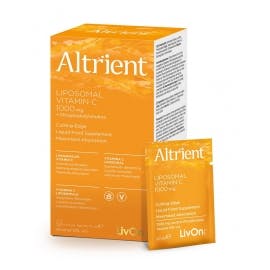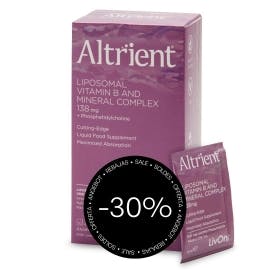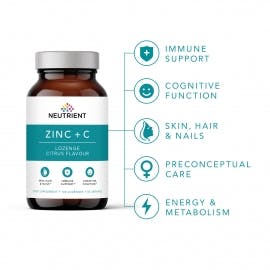Hair Rescue Plan for Menopausal Women
Although not all women experience hair loss at menopause, around 50% of postmenopausal women in their 50s do notice reduced hair growth and density.1 Despite this, changes in hair appearance during menopause often receive less attention than other symptoms. Hardly surprising that for many, hair loss feels like the final straw. However, a well-rounded hair care plan that incorporates the innovative MANTA hair brush technology, along with healthy dietary and lifestyle changes, can significantly ease the challenges associated with menopause.
MID-LIFE HAIR CRISIS
During menopause, the body undergoes significant hormonal changes, particularly a decrease in oestrogen levels. This shift can trigger various symptoms, including hair loss or thinning as hair follicles are highly sensitive to hormonal fluctuations.2 Additionally, subclinical hypothyroidism is common in women during menopause 3 and since thyroid hormones directly impact hair follicle functions, an imbalance may contribute to hair loss. 4
Although hormonal changes are part and parcel of the transition through menopause, there are ways to minimise the effects on hair health. Understanding how the scalp affects the natural growth and retention of hair gives an insight into the dietary and lifestyle measures that can be taken to enhance the health of the scalp and the quality of the hair that grows within it. The scalp environment surrounding and supporting growing hair is an intricate network of cells, blood vessels, nerve endings and glands that are dependent on a range of vital factors to ensure you have luscious, abundant hair.
FEED YOUR SCALP AND HAIR FROM WITHIN
The scalp plays an important role in maintaining an environment that encourages hair growth.5 The scalp has a very high turnover of hair follicle cells requiring a constant supply of nutrients and energy. Keeping your foods varied will provide a good range of nutrients essential for feeding the hair follicle, improving circulation to the scalp and supplying the building blocks for strong hair growth. Protein is particularly important as it is essential for producing keratin, a key component of hair tissue.
What is the Ideal Diet?
The Mediterranean diet is often recommended as one of the healthiest options 7,8and could do wonders for supporting your scalp and hair health. It emphasizes whole, minimally processed foods, abundant fruits, vegetables, whole grains, legumes, nuts, and olive oil, moderate consumption of fish and poultry, and low consumption of red meat and sweets. The low glycaemic index (GI) of these foods helps reduce blood sugar spikes that may impact hormone balance.
3 Ideal Supplements for Hair Health
All the key properties needed to support hair strength and volume can be found in just three supplements— what could be simpler?
Vitamin C
Vitamin C has multiple benefits relating to both scalp and hair follicle health. The antioxidant activities attributed to vitamin C provide a defence against harmful substances that cause oxidative stress, thus helping to protect hair follicle cells and nearby blood vessels that supply nutrients and oxygen to the scalp.
Vitamin C is also of great importance for scalp health due to its key role in contributing to the formation of collagen, a protein responsible for the strength, elasticity and structural support that holds the skin matrix together. Vitamin C is abundant in both the upper and lower layers of the skin, but its levels decrease with age.
Standard oral vitamin C has limited bioavailability, whereas liposomal formulas, like Altrient’s vitamin C, significantly enhance absorption due to their unique delivery system. A recent independent study showed how uniquely effective Altrient C is for hair health. Participants experienced visible improvements, including significantly reduced hair breakage, less hair loss, and increased hair thickness. To see full results from the study click here.
B Complex Vitamins
Healthy hair is dependent on B complex vitamins which are found in meat, wholegrains and green leafy vegetables. Deficiencies in the B vitamins, particularly folate and biotin may contribute to the undernourishment of hair follicle cells. Folate is important because of its contribution to normal amino acid synthesis, which is essential for the creation of keratin the protein hair is made up of. Biotin is another B vitamin known to contribute to the maintenance of normal hair and skin. Evidence indicates that 38% of women complaining of hair loss have a deficiency of biotin. 11 Riboflavin (vitamin B2) is another B vitamin that could be useful for scalp support because of its role in maintaining skin health and protecting cells from oxidative stress. Those with dietary restrictions or compromised digestion can benefit from well-absorbed liposomal formulas such as Altrient B, which carries the nutrients directly to the cells avoiding complicated digestive problems.
Zinc
Research indicates that zinc helps to maintain normal hair while protecting cells from oxidative stress. Its involvement in hair follicle development is highlighted by studies linking zinc deficiency to various types of hair loss.12 The beneficial properties of zinc make it an ideal accompaniment to a B complex and vitamin C to supercharge your daily hair care regime. Neutrient Zinc + C provides bioactive zinc acetate with added vitamin C for extra antioxidant support.
Once you’ve got a nutrition plan under your belt you need to think about the other ways you can promote strong healthy hair. Starting from the top down, there are a few things to consider:
Protect the Scalp From Harsh UV Rays
Protecting the scalp from excessive sun exposure is important. Just like our skin, the scalp can be affected by harmful UV rays, which can cause damage and inflammation. Wearing a hat or using sunscreen specifically formulated for the scalp can help minimise the risk of sunburn and related scalp issues.
Adopt Hair Grooming Habits that Avoid Damage
The way you handle your hair is really important If you want to keep it lush and abundant. Try to avoid hairstyles that pull on the hair or cause friction, this puts undue stress on the roots and may damage the follicle. Gentle daily brushing can stimulate blood flow to the scalp and may be beneficial for distributing natural oils and reducing tangles but can cause damage if the wrong tools or techniques are used.
Aggressive brushing especially when done on wet hair can cause mechanical damage, leading to breakage, split ends and frizz. Curly or wavy hair types are more prone to breakage when brushed frequently as these textures are usually more delicate. Tailoring your brushing habits to your hair type and using appropriate brushes like the MANTA brush can help to reduce harm.
The MANTA Brush – Reassuringly Gentle
If your hair has been affected by menopause and you’re concerned about preventing hair loss, it's worth investing in a top-quality hair brush like MANTA that is designed to minimise damage and suit your specific hair type. The MANTA brush is known for its gentle approach to detangling, whilst prioritising the health of the scalp and hair.
The key features of a MANTA hair brush are what makes it so unique:
- Patented FLEXGUARD Technology with 360-degree motion
- Flexible brush to detangle textured hair gently
- Wide spacing between the teeth to work with not against textured hair
- Long strong bristles to stimulate the scalp.
- Handle designed to give you maximum control & comfort
- Can be used with heat up to 80C/ 175
The MANTA hair brush was developed for all hair types including fine, fragile, thick, curls, coils, children, men, and hair extension wearers. Its pioneering FLEXGUARD technology enables each bristle on the base to have complete 360-degree motion so it never reaches the stress point that causes breakage, gently freeing knots while minimising damage and maximising shine. This technology is perfect for women dealing with hair thinning or fragility due to menopause, offering peace of mind that your brush is gentle and safe to use, without worrying about further hair loss.
MANTA brushes are designed to glide responsively through your hair using a specialist soft touch material which means no rough edges to catch or tear the hair shaft. Unlike many other brushes, MANTA is as gentle on the hair as running your fingers through it.
The MANTA Story
Tim Binnington, a professional hairdresser with over 25 years of experience and the founder of MANTA explains why he developed this unique brush:
“As the designer of the MANTA brush, I created it from a deeply personal experience. After my wife’s hair became fragile during her recovery from cancer treatment, I couldn’t find a brush gentle enough for her sensitive scalp and new hair growth. So, I set out to design one that nurtures both the hair and scalp while effectively detangling without causing damage.
Written by: Jacqueline Newson BSc (Hons) Nutritional Therapy
References
Chaikittisilpa Sukanya MD, MSc et al. Prevalence of female pattern hair loss in postmenopausal women: a cross-sectional study. Menopause 29(4):p 415-420, April 2022. | DOI: 10.1097/GME.0000000000001927
Bodo E et al. Human female hair follicles are a direct, nonclassical target for thyroid-stimulating hormone. Journal of investigative dermatology 2009; 129: 1126-1139.
3. Mintziori, Gesthimani et al. EMAS position statement: Thyroid disease and menopause. Maturitas, Volume 185, 107991. DOI: 10.1016/j.maturitas.2024.107991.
Ekmekc TR & Gizlenti S. The changes in the hair cycle during gestation and the post‐partum period. JEADV 2013; 28,7. https://doi.org/10.1111/jdv.12188.
Trüeb RM, Henry JP, Davis MG, Schwartz JR. Scalp condition impacts hair growth and retention via oxidative stress. Int J Trichol 2018;10:262-70.
Rinaldi F et al. The Menopausal Transition: Is the Hair Follicle “Going through Menopause”? Biomedicines. 2023; 11(11):3041. https://doi.org/10.3390/biomedicines11113041.
Hidalgo-Mora JJ et al. A. Diet to Reduce the Metabolic Syndrome Associated with Menopause. The Logic for Olive Oil. Nutrients. 2020; 12(10):3184. https://doi.org/10.3390/nu12103184.
Ko S-H, Kim H-S. Menopause-Associated Lipid Metabolic Disorders and Foods Beneficial for Postmenopausal Women. Nutrients. 2020; 12(1):202. https://doi.org/10.3390/nu12010202.
Upton JH et al. Oxidative stress-associated senescence in dermal papilla cells of men with androgenetic alopecia. J Invest Dermatol. 2015 May;135(5):1244-1252. doi: 10.1038/jid.2015.28.
Rhie G, Shin MH, Seo JY, et al. Aging- and photoaging-dependent changes of enzymic and nonenzymic antioxidants in the epidermis and dermis of human skin in vivo. J Invest Dermatol 2001; 117:1212-1217.
Trüeb RM. Serum Biotin Levels in Women Complaining of Hair Loss. Int J Trichology. 2016;8(2):73-77. doi:10.4103/0974-7753.188040.
Almohanna, H.M., Ahmed, A.A., Tsatalis, J.P. et al. The Role of Vitamins and Minerals in Hair Loss: A Review. Dermatol Ther (Heidelb) 9, 51–70 (2019). https://doi.org/10.1007/s13555-018-0278-6
.png?auto=format&q=45&w=848&trim=auto&git=crop)





.jpg?auto=format&q=45&w=262&trim=auto)